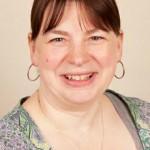
Professor Steve Fenton, SPAIS
Academic analysis and media commentary have shifted the emphasis from Tory voter defectors towards working class voters, and potential Labour supporters, in explaining UKIP support. This was a good corrective to earlier emphases. But has the new focus on working class voters and UKIP support left some gaps in the picture?
As Evans and Mellon have already pointed out, UKIP support is found across all classes, with about 50% of its potential votes coming from groups other than the working classes.

Dr Robin Mann, WISERD Research Fellow, Bangor University
The second wave of the British Election Study panel survey (fielded between May and June 2014) shows 14.4% of respondents intending to vote UKIP at a general election (including respondents saying ‘don’t know’ or ‘will not vote’. What can closer analysis tell us about higher class support for UKIP?





